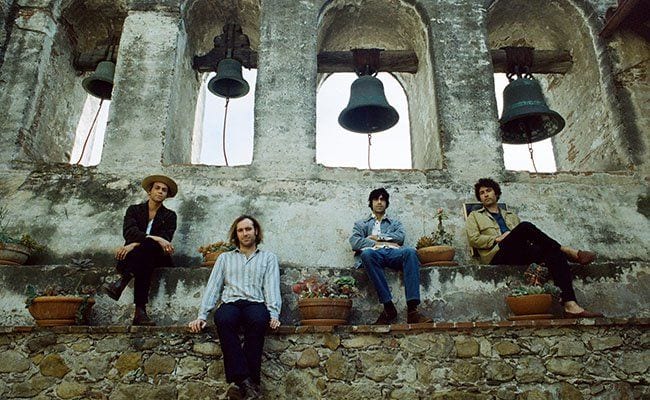
Psychedelia is too often viewed as a music of escape. It is too easy for over-simplified histories of rock and roll and its many sub-genres to uncritically quote the “Tune in. Turn on. Drop Out.” mantra and move along to the next scene.
Such cliched histories equate the “drop out” element as a willful removal from critical engagement with the broader culture when, in fact, that may have been the most critical and essential element of the 1960s underground culture. The message was not to drop out from caring but rather to drop out of the status quo: stop, in other words, being a willing or blind cog in the dominant culture’s machine of oppression. The “Feed your head” chant at the end of Jefferson Airplane’s “White Rabbit” was as much about new ways of thinking as it was about new methods of tripping; the Grateful Dead’s “Morning Dew” was a warning against blindness to the expanding machines of war; the whole of Arthur Lee and Love’s Forever Changes was an apocalyptic vision of Los Angeles as the black hole into which the rest of America is being drawn.
On the Allah La’s Calico Review, the band seem well aware of this history of psychedelia and the genre’s ability to say two things at once. That is, to entertain listeners via traditional boy/girl rock and roll tropes while building upon secondary levels of meaning: to entertain the feet while feeding the head. Miles Michaud, Pedrum Siadatian (lead guitars), Spencer Dunham (bass), and Matthew Correia (drums) continue their growth as a band with their third release. Calico Review places the Allah Las firmly at the forefront of the current, third psychedelic revival and should gain them a growing audience.
The album opens with Michaud singing “Strange heat been coming round / Sad, heavy on this town… For all I know, we’ve seen the darkest blow.” Michaud’s pronunciation of “heat” sounds almost like “hate”, evoking a sense of our troubled and divisive times. The feeling of contemporary unease and disconnection is only amplified through Calico Reviews’s many alleged love songs. “Satisfied by only what you know / Could you believe in something?”, Michaud sings in the second song, while in “Autumn Dawn” Siadatian expresses a similar doubt, asking “Could it be a sanctuary that I can’t explain? / When tomorrow comes around will you still be the same?”.
There’s an implicit criticism, throughout the album, that the personal choices we make in our relationships reflect the broader patterns of disassociation and avoidance explicit in our broader political climate. This mood is dominated by a sense of second-guessing and stubborn reliance upon unhealthy habits. “If you had a chance to”, Michaud sings in “Could Be You”, “Would you do it all again?” Then, in “Mausoleum”, Siadatian sings/sighs “Many times over, dream and recover” as if locked in an inescapable pattern. The vain and troubled subject of Dunham’s “Famous Phone Figure” is locked in just such a vacuous pattern of Snapchat pseudo-celebrity. Even the solace of Correia’s “Place in the Sun” is undercut by doubt and recrimination: “There’s no time to reason why / it’s gotta be this way / Once it’s gone we can’t go on / There’s nothing left to say.” All of these songs are shaped by an increasingly frustrated search for self-fulfillment. If there’s a central message, it may be that we are searching for solutions in all the wrong places.
Recorded at Los Angeles’ historic, recently renovated Valentine Recording Studio, Calico Review shows a rapidly maturing band, unafraid to reference their many influences while simultaneously forging their own sound and vision. The touchstones are all there. “Satisfied” opens and chugs along with a Syd Barrett-era Pink Floyd counter-beat. “Could Be You” builds around a “Sweet Jane”-like Velvet Underground drone. “Terra Ignota” evokes the Doors. Dunham and Correia resurrect the Beatles’ McCartney/Starr rhythm section in “High and Dry”. In true psychedelic fashion, this is a summery record for autumn’s shadowy days.


![Call for Papers: All Things Reconsidered [MUSIC] May-August 2024](https://www.popmatters.com/wp-content/uploads/2024/04/all-things-reconsidered-call-music-may-2024-720x380.jpg)



